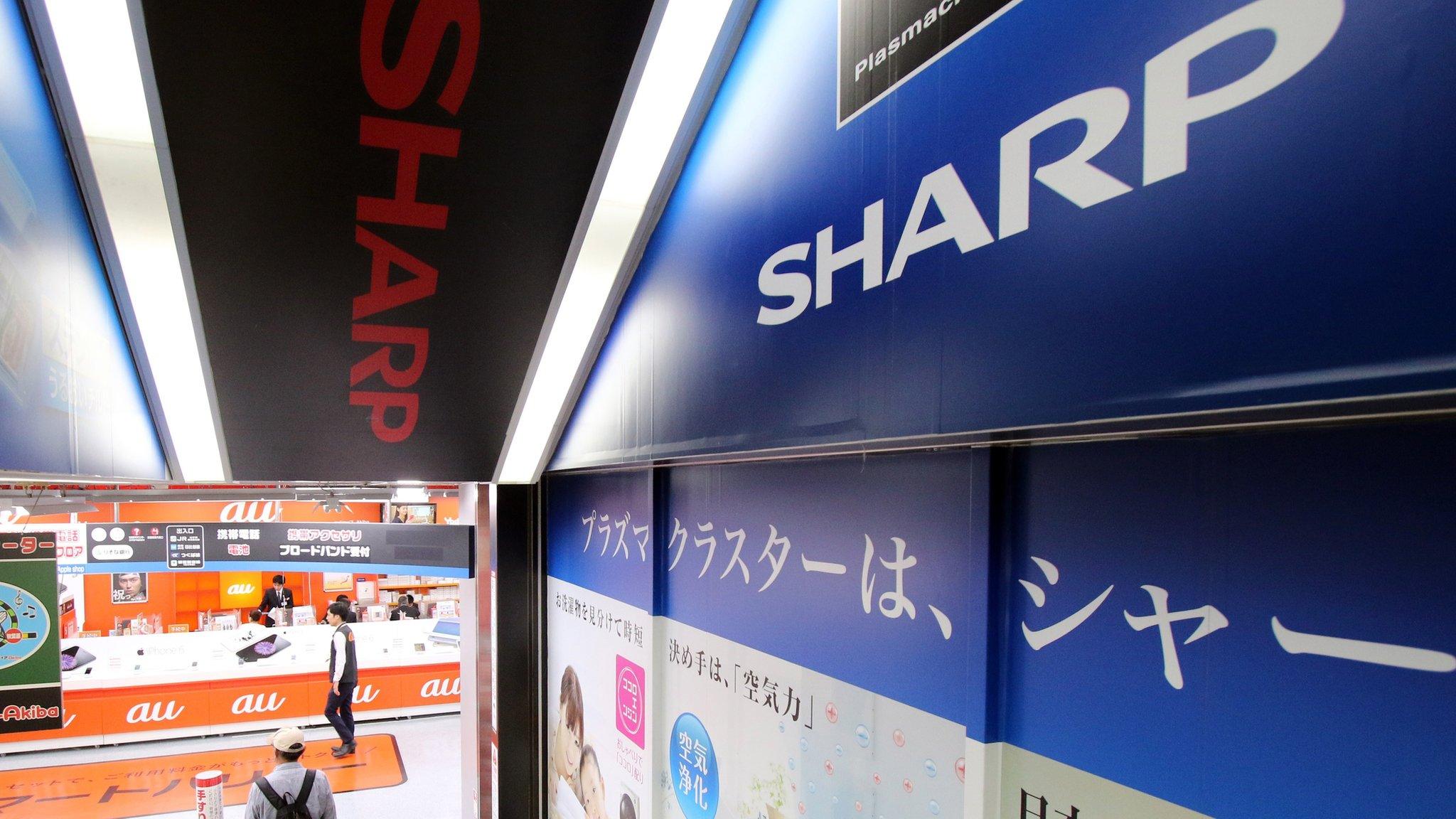Taiwan's Foxconn to delay $4.3bn takeover of Sharp
- Published
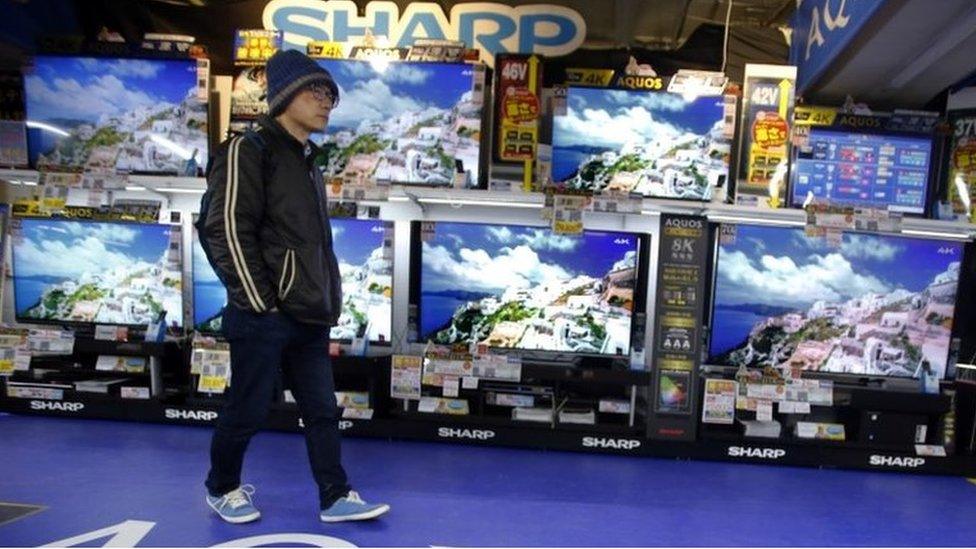
Sharp has struggled with heavy debts and has been through two major bailouts
A deal to take over Japanese electronics giant Sharp by Taiwanese manufacturer Foxconn, has been thrown into question by a last minute delay.
Foxconn said it had received new information from Sharp which needed to be clarified.
The news came hours after the announcement, external that the $4.3bn (£3.08bn) deal had been agreed.
Foxconn assembles most of the world's iPhones. Sharp is one of Japan's oldest technology firms.
Foxconn Technology Group said that Sharp had couriered over "new material information" to the management.
The Taiwanese company said in a statement: ``We will have to postpone any signing of a definitive agreement until we have arrived at a satisfactory understanding and resolution of the situation,''
If the deal goes ahead, it would be the first foreign takeover of a major Japanese electronics firm in a historically insular technology sector.
Japanese officials had been reluctant to let Sharp fall under foreign ownership because of the distinctive technology behind its display panels.
Before the announcement of a deal with Foxconn, Sharp had been discussing a rival offer from a Japanese government-backed consortium of Japanese investors.
Founded in 1912, innovations by Sharp include a mechanical pencil in 1915 and pioneering developments in television engineering.
Although recent years have seen a downturn in its fortunes with heavy debts, the firm continued to be a leader in liquid display technology, a key asset for Foxconn.
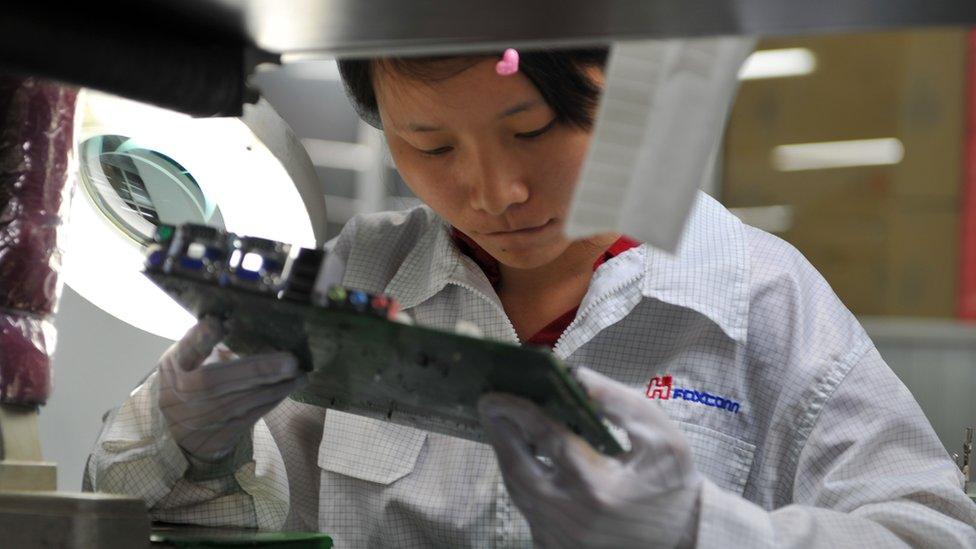
Hon Hai, also known as Foxconn Technology Group, manufactures products for Apple among other global giants
Going global together
The takeover plan involves Sharp, which employs more than 50,000 globally, issuing new shares to Hon Hai Precision Industry Co Ltd, which trades under the Foxconn name.
Sharp's shares were halted from trading ahead the announcement. They later reopened and closed down by nearly 15%.
Technology specialists said the two companies were a logical fit.
"Sharp is strong in research and development, while Hon Hai knows how to market products to customers such as Apple, and it also has expertise in production. Together they can go global," Yukihiko Nakata, a technology professor and former Sharp engineer told AFP news agency.

What's behind the takeover? - Karishma Vaswani, Asia Business Correspondent
Trying to save one of the giants of the Japanese tech sector has been challenging to say the least, but even harder if the response in your industry to any foreign takeover deal is usually a no.
That's because Japan's technology sector is historically extremely insular, and has been reluctant to let outsiders in.
Partly the concern is fuelled by a fear that Japan's proprietary technological expertise may be at risk - but it's also partly because of a Japanese corporate culture that prefers keeping the dirty laundry in the family.
But when times are tough, business acumen trumps nationalistic tendencies.
A takeover by Foxconn could help Sharp sell its liquid crystal display panels elsewhere in the region and inject fresh funds and ideas into the ailing electronics maker.
But turning Sharp around won't be easy. Even after two bailouts it has been unable to turn its fortunes around. Will Foxconn be able to succeed where others have failed?

Struggling firm
Earlier this month, as it was considering several takeover offers, Sharp posted a bigger-than-expected net loss of $918m (£630m) for the April-to-December period.
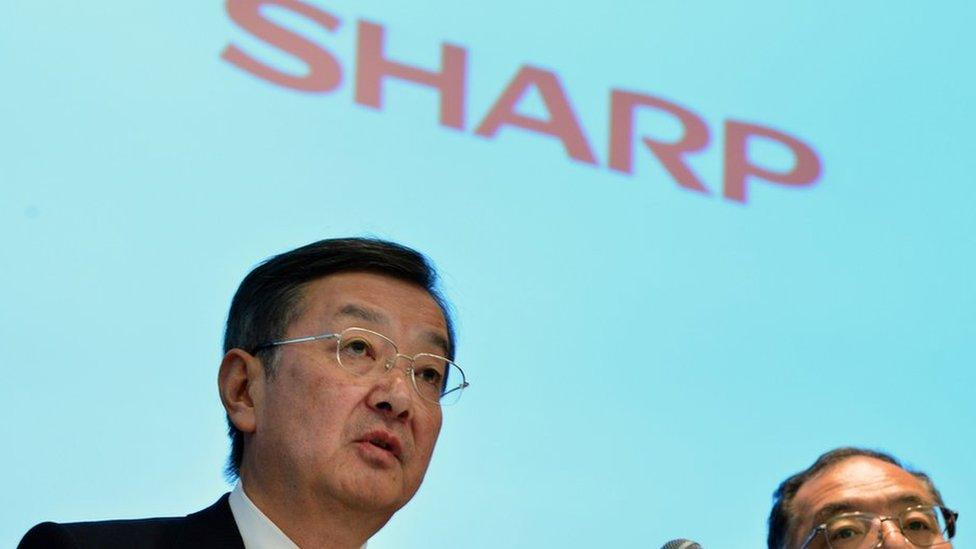
Kozo Takahashi, left, has been president of Japan's electronics giant Sharp Corporation June 25, 2013
In 2012, the firm came close to entering bankruptcy. It has struggled with heavy debts and has been through two major bailouts in the last four years.
Foxconn first offered to invest in the troubled Japanese firm in 2012, but talks collapsed.
- Published25 February 2016
- Published14 May 2015
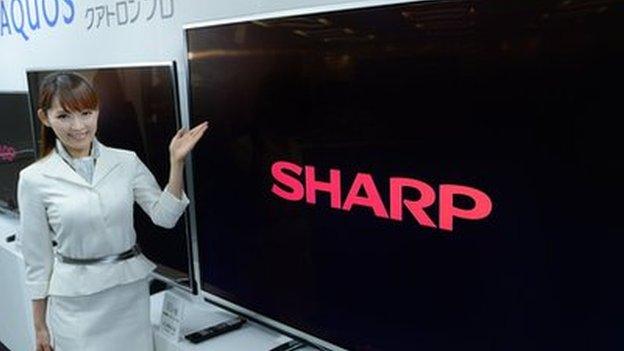
- Published30 October 2015
